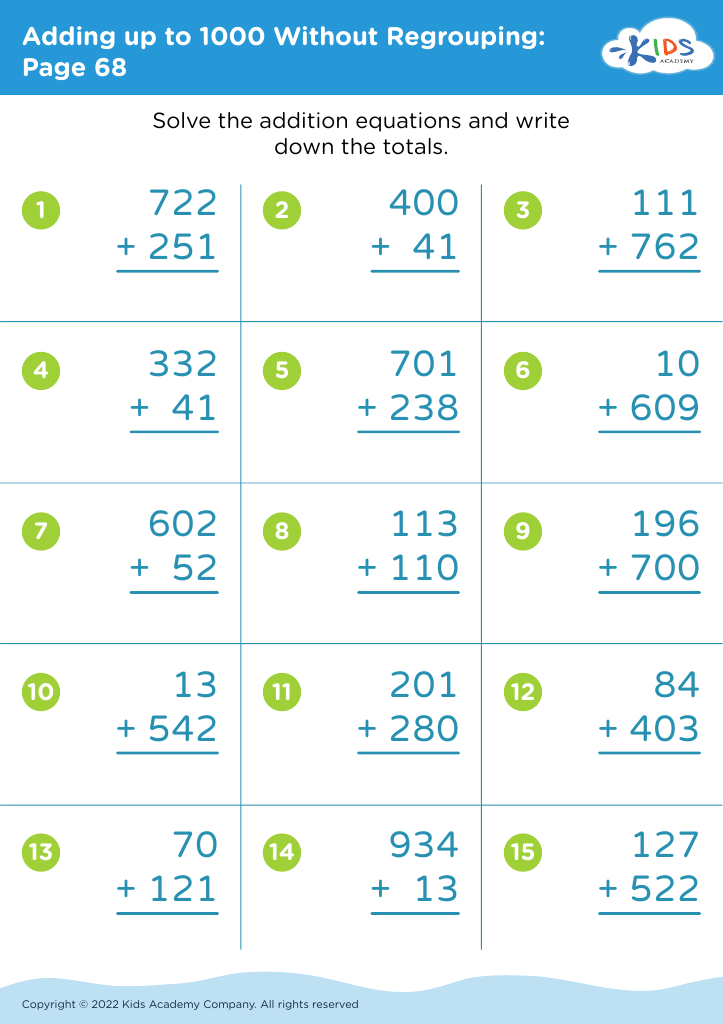Understanding number sequences Math Worksheets for Ages 5-9
7 filtered results
-
From - To
Welcome to our "Understanding Number Sequences Math Worksheets" specifically designed for children ages 5-9! Our engaging worksheets are crafted to help young learners grasp the concept of number sequences through fun exercises. Students will explore patterns, complete sequences, and practice essential number skills. Each worksheet promotes critical thinking and strengthens mathematical foundations, making learning enjoyable. Parents and teachers will find these resources invaluable for reinforcing classroom learning and fostering a love for math. Dive into our comprehensive collection to support your child's math journey today! Perfect for homeschooling or classroom use, these worksheets make learning sequences exciting and simple!
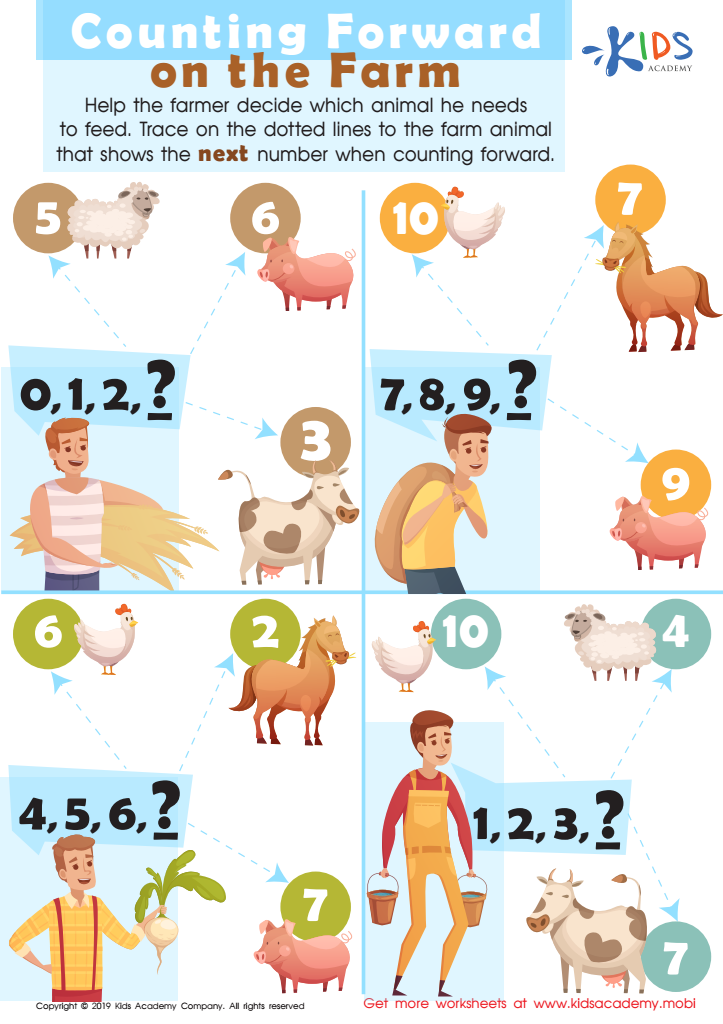

Counting Forward On the Farm Worksheet
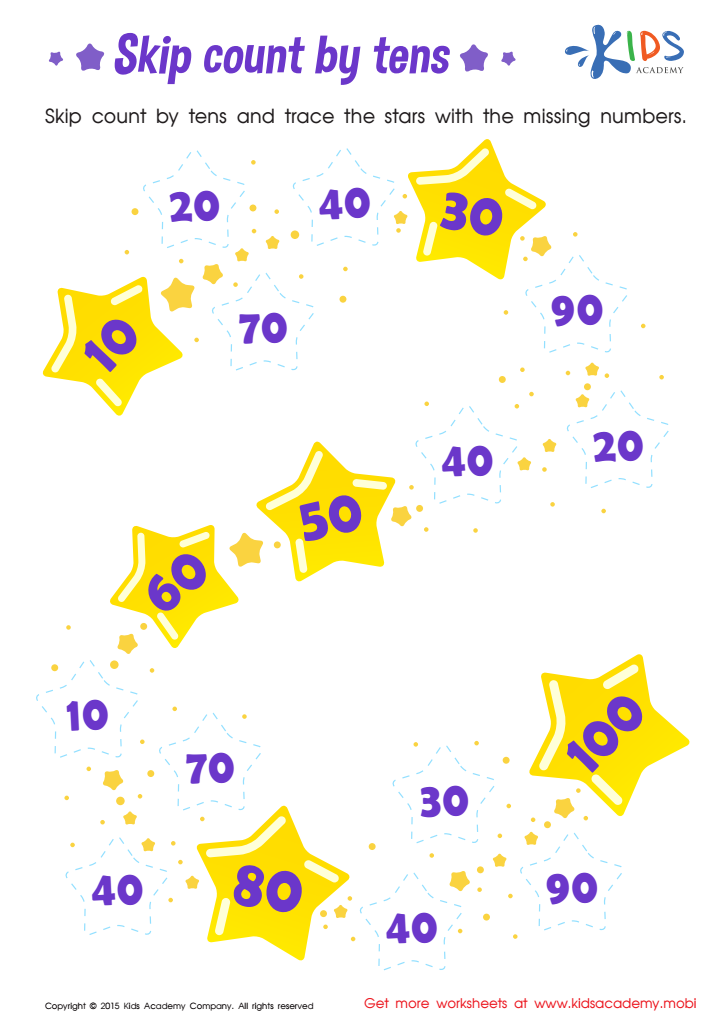

Learn dozens: Skip Count by Tens Printable
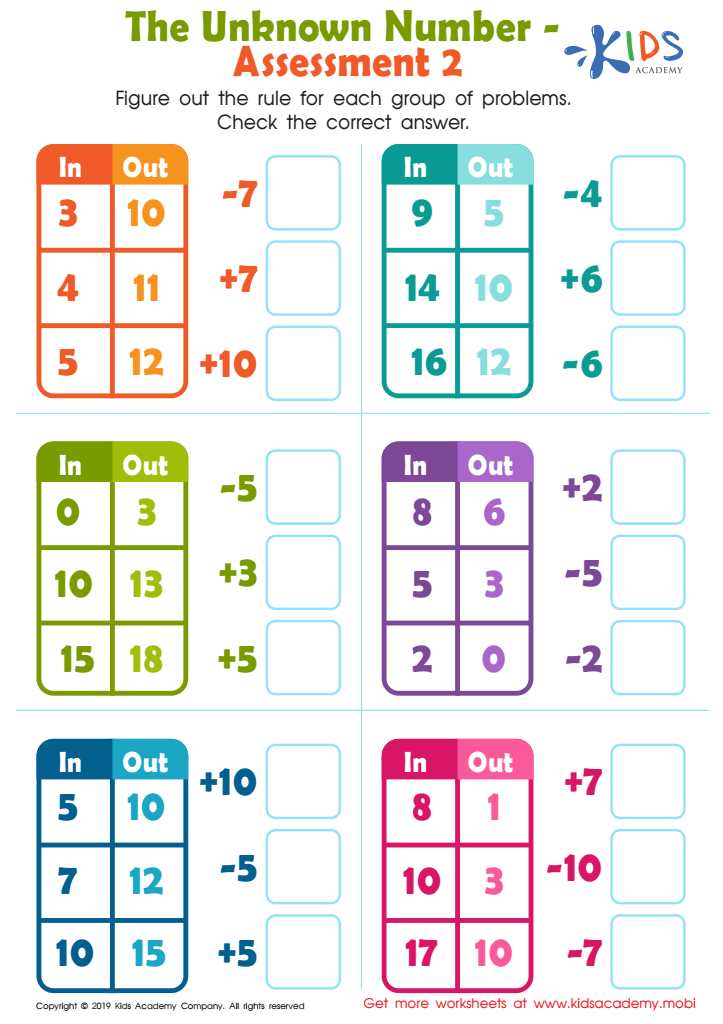

The Unknown Number - Assessment 2 Worksheet
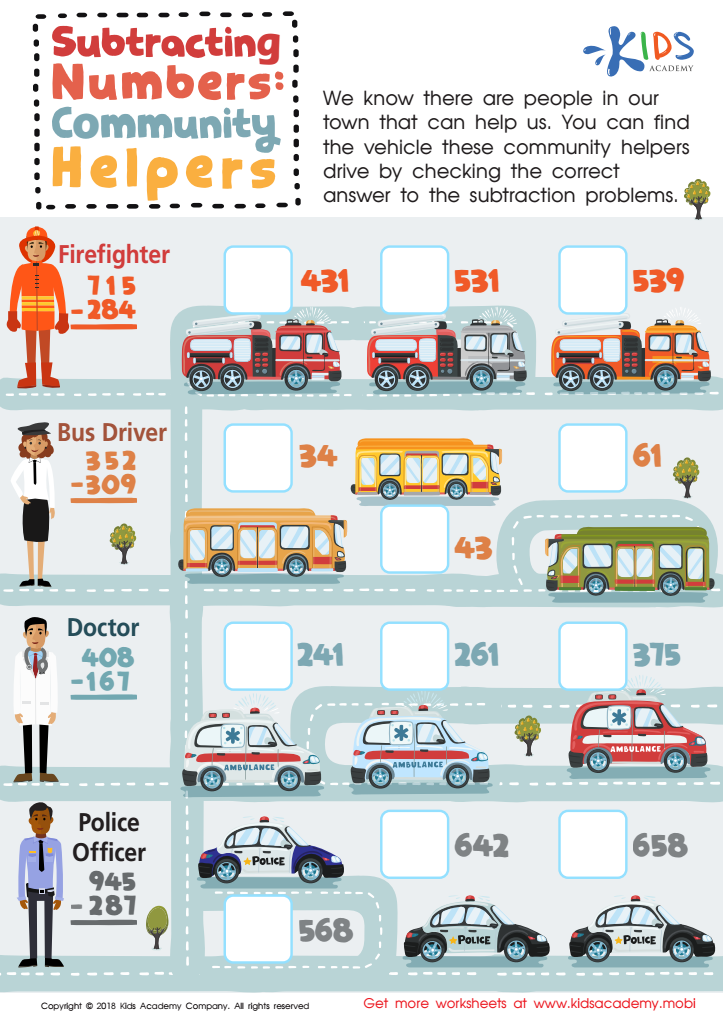

Subtracting Numbers: Community Helpers Worksheet
Understanding number sequences is critical for children aged 5-9, as it forms the foundation of their mathematical skills. At this age, children begin to grasp essential concepts such as counting, ordering, and pattern recognition, which are invaluable for their cognitive development and daily problem-solving. Recognizing patterns fosters critical thinking and logical reasoning, empowering children to make connections and predictions in mathematics.
Moreover, this early knowledge helps in developing numerical fluency – the ability to effortlessly manipulate numbers, which is crucial as they progress to more complex math topics like addition, subtraction, and eventually multiplication and division. Parents and teachers play a vital role in this by encouraging an engaging and supportive learning environment. For instance, using everyday activities or games can create enjoyable methods for children to build their sequencing skills.
Additionally, mastery in understanding number sequences fuels confidence in young learners, reducing math anxiety and fostering a positive attitude toward math. The skills acquired in early childhood math lay the groundwork for future academic success in various subjects and enhance critical skills needed for life, such as problem-solving and analytical thinking. Thus, prioritizing this aspect of math is essential for supporting a child’s overall development and readiness for later educational challenges.

 Assign to My Students
Assign to My Students

